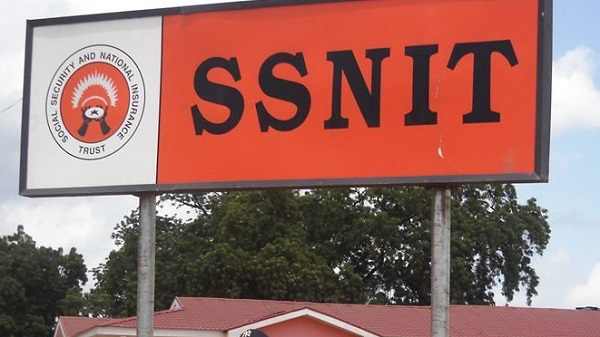Ghana. SSNIT expands coverage of basic social security scheme to self-employed persons
The Social Security and National Insurance Trust (SSNIT) has launched the Self-Employed Enrolment Drive (SEED), a product geared towards expanding coverage of the basic national social security scheme to self-employed Ghanaians.
Dr John Ofori-Koranteng, Director-General of SSNIT, speaking at the launch of the product in Kumasi, said the aim was to redefine social security in Ghana and give hope to the self-employed to be able to retire in dignity and comfort.
In pursuit of this agenda, the management of SSNIT had carried out extensive engagements with various stakeholders across the country, to solicit input and support on how to extend pension coverage to the self-employed.
According to him, the engagements revealed that, Ghana had relied on the compulsion of the law to extend pension coverage to employees through their employers, where several employers had complied begrudgingly.
Again, stakeholders saw SSNIT as a tax, and tried very hard to pay the barest minimum by pushing most employee entitlements into allowances and paying SSNIT contributions on minimal basic salaries.
Dr Ofori-Koranteng indicated that this had then snowballed into several pensioners receiving relatively small pensions (because small salaries/contributions equal small pensions and vice versa), which made the Scheme unattractive, especially to the self-employed who are not obligated by law to join the Scheme.
“On a personal level, these engagements and this journey have convinced me that extending pension coverage to everyone who spends their best years toiling and working daily to build our country is simply the right thing to do.
Of course, there is also the added bonus of the improved sustainability of the Scheme.
The law has its place but for this campaign, we are going to rely heavily if not exclusively, on the strengths of the Tier One product…and we believe that once we have convinced the self-employed to look at SSNIT again, we will get them to sign up,” he explained.
The Director-General was optimistic that the self-employed would sign up because SSNIT was offering an opportunity for them to ensure their incomes so it could be replaced when they were old or become invalid and could not work again.
The same Scheme will also pay a benefit to their survivors if they pass on.
Dr. Ofori-Koranteng said unfortunately, only about 1.9 million of the 10 million workers in the country were covered under the SSNIT Scheme.
What was more disturbing was that only about 32,000, representing just about two percent of active contributors, were self-employed, even though most workers in the country were self-employed and/or work in the informal sector.
This meant most self-employed workers risked working their entire lives even when they were old and frail or having to rely on the state or family and friends for financial support when they retire.
“This unbalanced coverage of workers is a sad commentary of our social protection system, and we have a responsibility to change this narrative.
The SSNIT Scheme is not for formal sector employees only, it is for all workers in Ghana.
Indeed, our highest earning pensioner (GH₵169,000) was a businessman,” he disclosed.
Dr Ofori-Koranteng urged Ghanaians to take the tier two and tier three contributions seriously, adding that, it would ensure that in addition to the monthly pensions received from SSNIT, the other two tiers would each pay a one-time lump sum when one retired.
Mr. Bright Wereko-Brobbey, Deputy Minister of Employment and Labour Relations, noted that the Scheme was more appropriate for self-employed people because more of the people in this sector had the capabilities of contributing hugely on a monthly basis.
He used the occasion to urge the management of SSNIT to continue improving on service delivery, simplify onboarding processes and maintain open-door policies that allowed clients to easily reach out and lodge complaints.
Read more @NewsGhana
339 views










